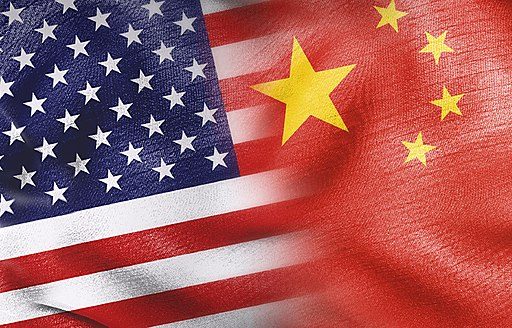XPONENTIAL 2025, hosted by the Association for Uncrewed Vehicles and Systems International (AUVSI), is underway in Houston, TX, bringing together more than 7,500 global leaders, technologists, policymakers, and end users from over 60 countries to shape the future of autonomous systems and robotics. This annual gathering is recognized as a premier event for collaboration and innovation across air, land, sea, and cyber domains.
A highlight this morning was a keynote session featuring Sue Gordon, former Principal Deputy Director of National Intelligence, in conversation with Dr. Rush Doshi, C.V. Starr Senior Fellow for Asia Studies at the Council on Foreign Relations and former senior director for China and Taiwan at the U.S. National Security Council. Gordon, with decades of experience in intelligence and national security, and Doshi, a leading expert on Chinese strategy and global affairs, offered a wide-ranging discussion on the challenges and opportunities facing the uncrewed systems industry.
Sue Gordon and Rush Doshi: Navigating a Changed World Order
Gordon opened with a candid assessment: “The world order has already changed.” She pointed to China and Russia as nations with clear, assertive strategies, contrasting this with the United States’ “inherent advantages” but also its current challenge: a lack of focus in times of rapid change. “China, like many authoritarian regimes, has the benefit of focus. The advances that China has made over the past decade… is absolutely remarkable, undeniable, and daunting… because of that focus,” she said. Gordon emphasized that while the U.S. remains a strong nation, capitalizing on its potential requires unity and decisive action.
Innovation: Outcomes Over Technology
Addressing entrepreneurs and innovators, Gordon delivered a strong message: “Everyone’s technology is available to everyone. This is a world where capability is not enough… the one who is going to win is the one who can think of a clever way to put it to use.” She urged companies to shift their focus from sales metrics to measurable outcomes, highlighting the importance of understanding and delivering on mission needs. “Don’t just show up with new cool technology and expect military divisions to figure out how to use it,” she cautioned, underscoring the need for solution providers to align closely with end-user missions.
Policy, Affordability, and Cyber Resilience
Gordon described the current environment as one of “resplendent opportunity,” but warned that these opportunities are fleeting and require readiness. She advised companies to maintain a Washington presence to stay attuned to policy shifts and windows of opportunity. On affordability, she noted, “In America right now, cost effectiveness is one of the mantras,” recommending that new solutions integrate smoothly with existing infrastructure to minimize disruption.
Cybersecurity was another focal point. Gordon reframed cyber risk as a multidimensional challenge, not merely technical but also physical and cultural: “Cyber is the means by which our adversaries advance their interests at the expense of ours. You are either target, or transportation for our adversaries.” She urged boards and companies to assess what assets are most valuable to competitors and to understand the interconnectedness of today’s digital world.
Supply Chain, Partnerships, and Global Strategy
On supply chain resilience, Gordon advised companies to plan for disruption, understand their sources of supply, capital, and talent, and prioritize selling to partners and allies who value U.S. technology. She stressed the importance of partnerships for young companies seeking to scale and make an impact globally, noting that collaboration and overseas investment can accelerate inclusion and effectiveness.
When asked about the key missions for both the U.S. and international markets, Gordon identified situational awareness and rapid response as universal priorities: “People need to know what’s happening to them at speed – the combination of situational awareness and rapid response. Almost everyone is now looking for that capability.”
Common Pitfalls and the Path Forward
Gordon concluded with a warning against overinvesting in technology at the expense of understanding mission needs. “No one is confused about the great strength of American power – it’s you (innovators). People make a mistake of overinvesting in technology and underinvesting in mission. You need a Washington presence. You need to understand what the policy/mission nexus is going to be.”
The session’s message was clear: In a world of rapid technological change and geopolitical competition, success depends not just on innovation, but on understanding and serving mission needs, building resilient partnerships, and maintaining agility in the face of uncertainty.


